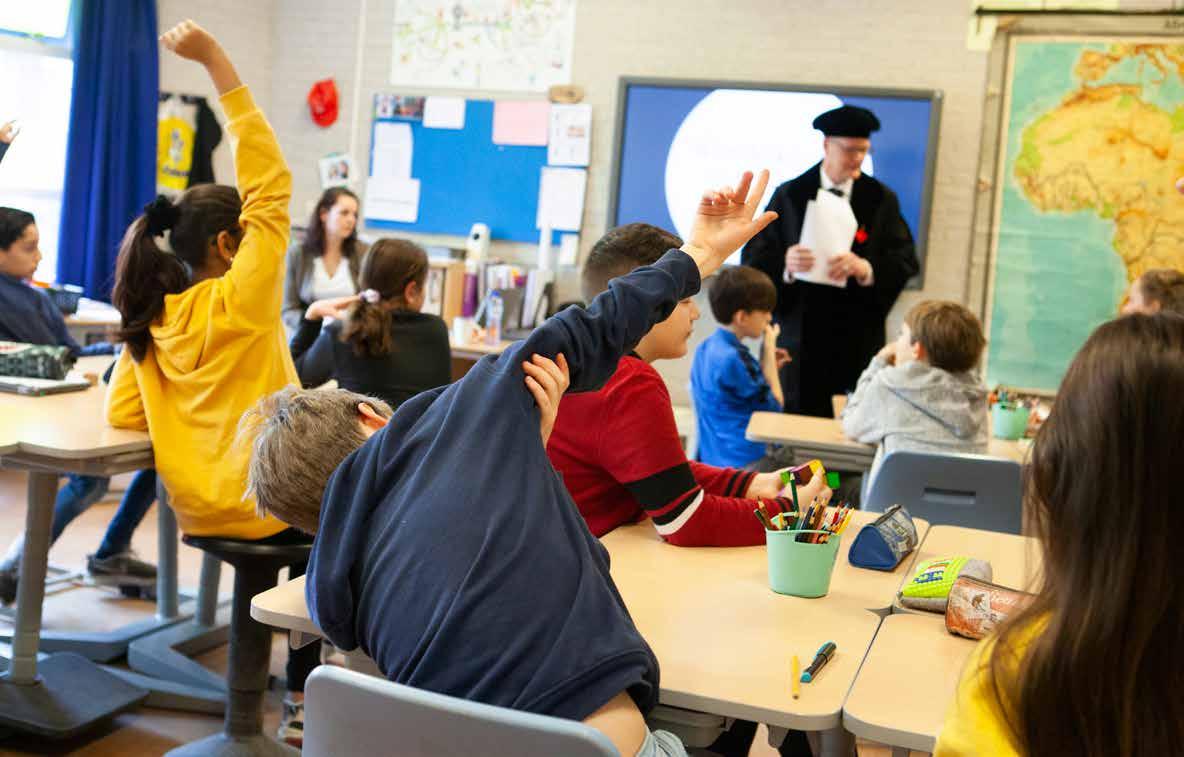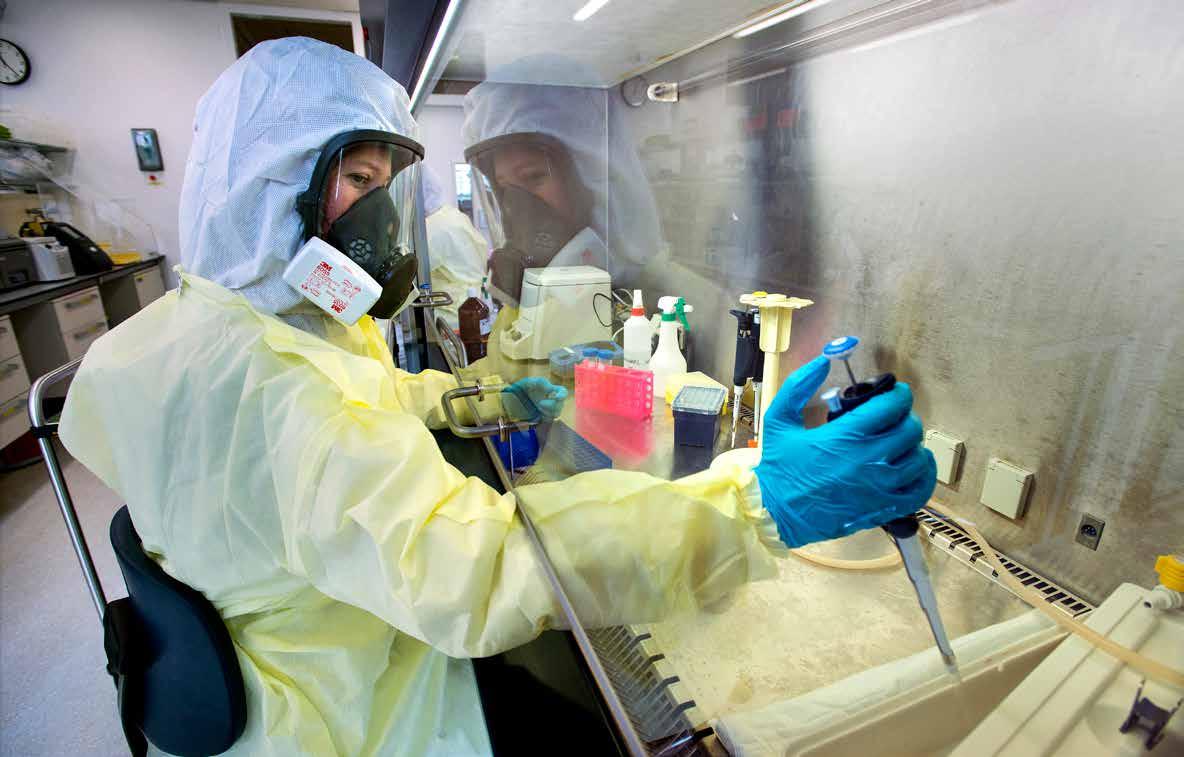
3 minute read
Impact
from About us 2021
‘Meet the Professor’ gives hundreds of children from primary schools in the Leiden and The Hague area a glimpse of the world of academia and research.
We serve society
Our academic and societal impact are of great importance to us. Our work is helping achieve the United Nations’ Sustainable Development Goals, and our research generates patents, start-ups and innovation. We are also keen to work with businesses, such as those on the Leiden Bio Science Park, and we actively encourage entrepreneurship.
With our research and teaching we want to work towards a better world. We join in the scientific and public debate, and seek answers to economic and societal issues, at the local, regional and global level.
SCIENTIFIC IMPACT Our research advances science. Leiden University ranks highly in various league tables, and our research output is extensive, with almost 450 doctorates and over 6,000 academic publications every year. ECONOMIC IMPACT Thanks in part to Leiden University and Leiden University Medical Center, the city of Leiden has the best business climate of all economic regions in the Netherlands. Our research leads to innovation, patents and start-ups. We like to work with businesses, such as those on the Leiden Bio Science Park (LBSP). The LBSP is responsible for an above-average increase in employment in Leiden and beyond, and employs over 19,000 people. It is responsible for a further 3,000 indirect jobs in Leiden. We have two funds (ELF Pre-Seed and UNII) to promote entrepreneurship, such as new start-ups.
PARTNERSHIPS We work with a wide range of partners, including other knowledge institutions, the private sector, the public sector, NGOs, museums and charitable organisations. This is close to home: Leiden Knowledge City and PLNT (the Leiden Centre for Innovation and Entrepreneurship) in Leiden and various partners in the field of peace, justice and security in The
The University raised over 1 million euros in a crowdfunding campaign for research into the development of a COVID-19 vaccine. Molecular virologists Eric Snijder and Marjolein Kikkert from the LUMC are working together with Janssen Pharmaceuticals at the Leiden Bio Science Park.

Hague. And further away: at our institutes abroad and many universities all round the world, for example.
ADVICE AND DEBATE Our researchers help resolve societal issues. This often takes the form of advice: legal experts advise on the administration of justice and legislation; psychologists and medical specialists advise on healthcare; public administration specialists and political scientists advise on policy issues; and academics from the humanities advise on international issues. With their unique expertise, such as knowledge of the closed world of North Korea, Leiden researchers are frequently invited to speak in the media. They join in the public debate with their columns, comments in the media, opinion pieces and presence on Twitter.
LIFELONG LEARNING We offer a wide range of educational programmes, from our regular bachelor’s and master’s programmes to our advanced master’s programmes. Our Graduate School of Teaching (ICLON) provides teacher training and we offer further training, summer schools, courses and learning tracks. We also have more than 30 free, English-taught online courses (MOOCs) on subjects varying from international law and terrorism to cultural heritage and kidney transplantation. The millionth participant has already registered for one of our MOOCs STUDENT IMPACT Our students are very active – outside the University too – and Leiden and The Hague benefit from their presence. In the Learning with the City project, our students try to resolve urban issues, and in Lugus, young student entrepreneurs with specific plans and ideas join forces with representatives from the business sector. Many students do valuable work for employers during an internship or on a study assignment. Our students can also be found doing voluntary work ranging from helping out with Leiden’s traditional 3 October celebrations, hosting a dinner for the homeless and organising the Leiden Museum Night, to working with local authorities on local community projects.










